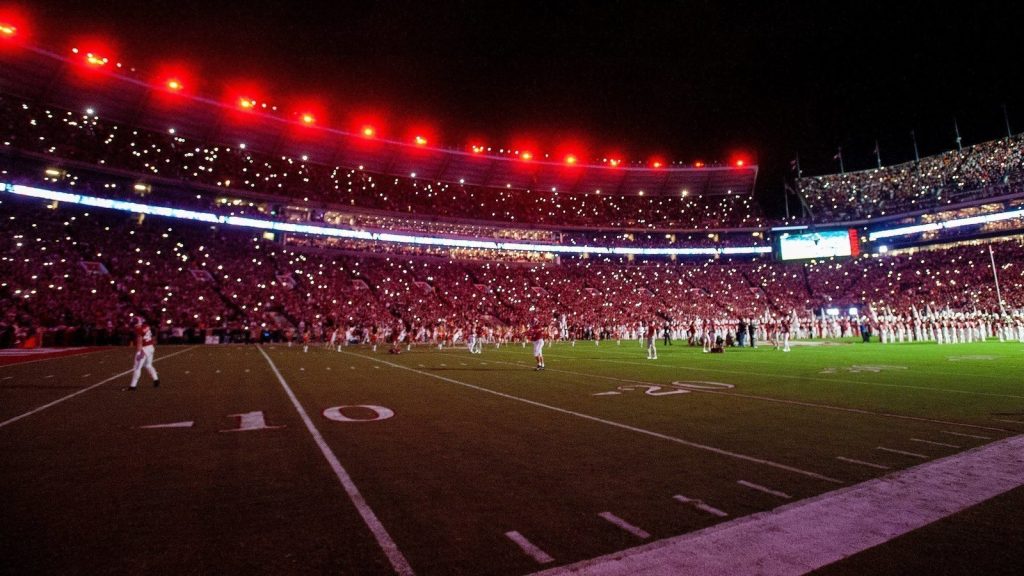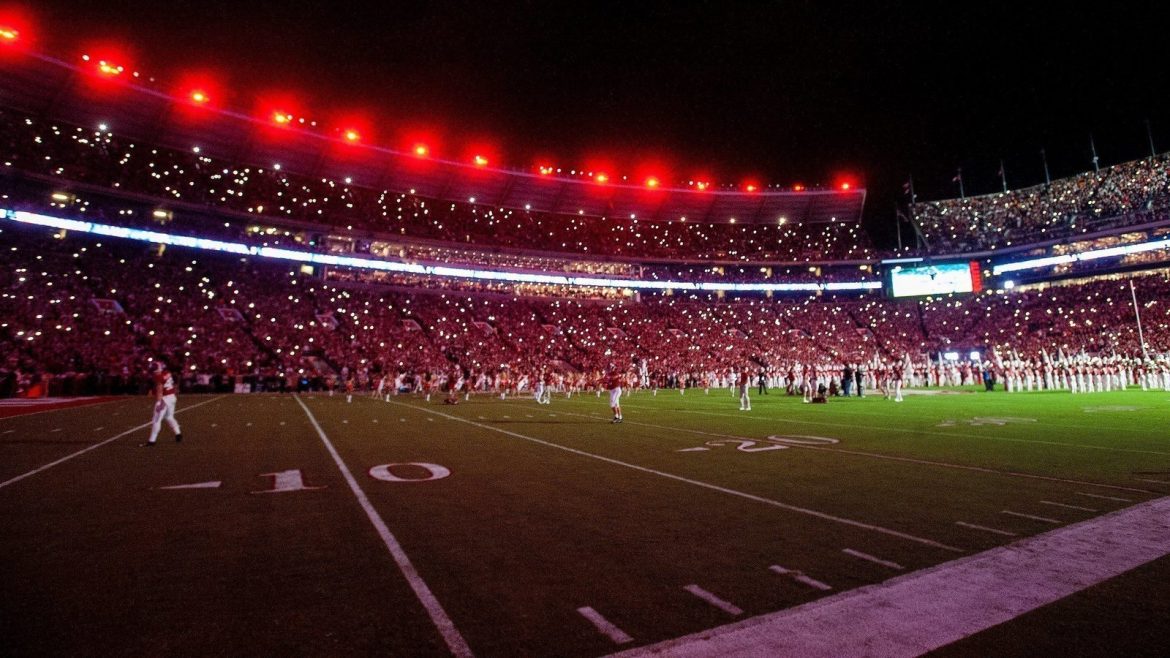Sports stadiums and arenas serve as epicenters of human emotion, where the thrill of competition collides with the power of collective celebration. A vital component of this electric atmosphere is the carefully curated soundtrack reverberating through the venue, providing a pulsating rhythm to the unfolding drama.
Crafting these playlists is a meticulous process that involves understanding the diverse audience, setting the appropriate tone, tailoring the music to the sport, navigating legal considerations, engaging the crowd, and staying attuned to evolving trends and technology.

Understanding the Audience
Creating a sports stadium soundtrack begins with a deep understanding of the diverse audience it caters to. Unlike traditional concerts or music festivals, stadiums host a wide spectrum of individuals, ranging from die-hard fans to casual spectators. This diversity necessitates a playlist that strikes a harmonious chord with everyone present.
Considerations must extend to various demographics, including age groups, cultural backgrounds, and musical tastes. For instance, a basketball game might attract a younger crowd looking for the latest hits, while a baseball match may appeal to a more diverse age range with a blend of classics and modern tracks.
Furthermore, it’s essential to gauge the emotional investment of the audience. Passionate fans may have specific anthems or chants associated with the team, creating an opportunity for an even deeper connection through the music.
Also Read: The Magic Of Live Music: Why Concerts Remain An Unbeatable Experience
Setting the Tone
After comprehending the audience, setting the event’s tone is the next pivotal step in crafting a sports stadium soundtrack. The playlist is paramount in dictating the stadium’s energy level, influencing the game’s emotional peaks and valleys.
A high-stakes playoff game might require an intense, pulsating playlist to amp up the atmosphere, creating an electrifying backdrop for the crucial moments.
Conversely, a family-friendly event could benefit from a more lighthearted and inclusive selection, fostering an atmosphere of camaraderie and shared enjoyment.
The tempo and genre of the music are strategic tools in influencing the ebb and flow of the game. Upbeat, high-energy tracks can infuse a surge of motivation during critical plays, while slower, suspenseful melodies can heighten the tension in pivotal moments. The soundtrack becomes integral to the narrative by orchestrating these musical dynamics, enhancing the emotional rollercoaster that defines sports events.
Tailoring to the Sport
Each sport possesses its unique rhythm and tempo, and the soundtrack should seamlessly complement this dynamic. Understanding the difficulties of the sport allows for a more immersive integration of music that enhances the overall experience.
For instance, a soccer match, known for its continuous action, may benefit from a playlist with steady, energetic beats that sustain the momentum throughout the game. This relentless pace mirrors the sport’s nature, ensuring that the music is not just an accompaniment but an active participant in the unfolding drama.
Conversely, a baseball game characterized by intermittent excitement requires a different approach. Here, the playlist might incorporate a mix of suspenseful tracks and high-energy anthems for the climactic moments.
Sportsbooks usually have high-suspense music playing in the background of their sports betting apps to make the betting experience more thrilling and engaging. This carefully selected soundtrack is designed to heighten the emotional intensity of the moment, creating a sense of anticipation and excitement for the bettors.
The soundtrack elevates the overall engagement by synchronizing the music with the sport’s rhythm, creating a synergistic relationship between the game and its auditory backdrop. This tailored approach ensures that the music becomes an organic extension of the sport, enhancing the emotional resonance for players and fans.
Licensing and Legal Considerations
Creating a sports stadium soundtrack also involves navigating the complex music licensing and legalities landscape. Stadiums must secure the appropriate licenses to play copyrighted music in public venues. This involves negotiations with artists, record labels, and performance rights organizations to ensure compliance with copyright laws.
Some artists may have specific restrictions on when and how their music can be played, emphasizing the importance of legal diligence in the playlist creation process.
Licensing agreements extend beyond the initial selection of songs. They may dictate how often a track can be played, whether it can be used for specific events and whether it can be altered or remixed. This ensures that the soundtrack adheres to legal standards and respects the artists’ and their representatives’ rights and wishes.
Strategically navigating the legal landscape of music usage in sports stadiums is essential to avoid legal complications and support and uphold the rights of the artists whose work contributes significantly to the overall experience.
Engaging the Crowd
A sports stadium soundtrack is more than just background noise; it’s a dynamic force that can engage the crowd and transform them from passive spectators into active participants. Achieving this level of engagement requires a thoughtful curation of songs that resonate with the audience’s emotions and motivations.
One effective way to engage the crowd is by including crowd-pleasers—songs that fans associate with their team or have become anthems for the sport. These tracks evoke a sense of belonging and unity, amplifying the collective experience.
Additionally, using music cues at strategic moments can intensify the emotional impact of key plays or celebratory moments, creating an immersive atmosphere long after the game has concluded.
Some stadiums have taken crowd engagement to the next level by integrating interactive elements. Mobile apps and digital platforms allow fans to influence the soundtrack in real time, giving them a direct stake in the atmosphere. By harnessing technology in this way, stadiums can create a more personalized and engaging experience for their audience.
Also Read: Harmonious Reflections: How Your Musical Tastes Echo Your Personality
Evolving with Trends and Technology
With the music world continuing to evolve, sports stadium soundtracks must adapt to stay current and relevant. Advancements in technology have opened up new possibilities for enhancing the auditory and visual experience.
Stadiums now employ advanced audio systems and synchronized lighting to create a multisensory spectacle that amplifies the impact of the music. This immersive approach heightens the overall experience and sets the stage for unforgettable moments.
Moreover, staying attuned to emerging musical trends is paramount. Incorporating fresh tracks and genres ensures that the soundtrack remains a vibrant and dynamic aspect of the event.
Stadiums can connect with younger generations while catering to established fan bases by embracing new sounds and styles. This adaptability allows the soundtrack to evolve in tandem with the ever-changing music landscape, ensuring that it continues to be a driving force behind the electrifying atmosphere of sports events.
Crafting a sports stadium soundtrack is a complex and nuanced process that requires a deep understanding of the audience, an acute awareness of the sport’s dynamics, legal diligence, and a keen eye for evolving trends and technology. Each facet creates an auditory experience that elevates the atmosphere, transforming the stadium into a living, breathing entity.
Navigating the legal landscape ensures the playlist respects artists’ rights while providing a seamless auditory backdrop. Whether through crowd-pleasers or interactive technology, engaging the crowd transforms passive spectators into active participants.
Incorporating the latest audio technology and staying attuned to musical trends ensures the soundtrack remains fresh and relevant, resonating with seasoned fans and the next generation. Through these meticulous steps, the sports stadium soundtrack becomes a powerful force, enhancing the experience for players and fans alike, leaving an indelible mark on the memories of those who witness the magic.




